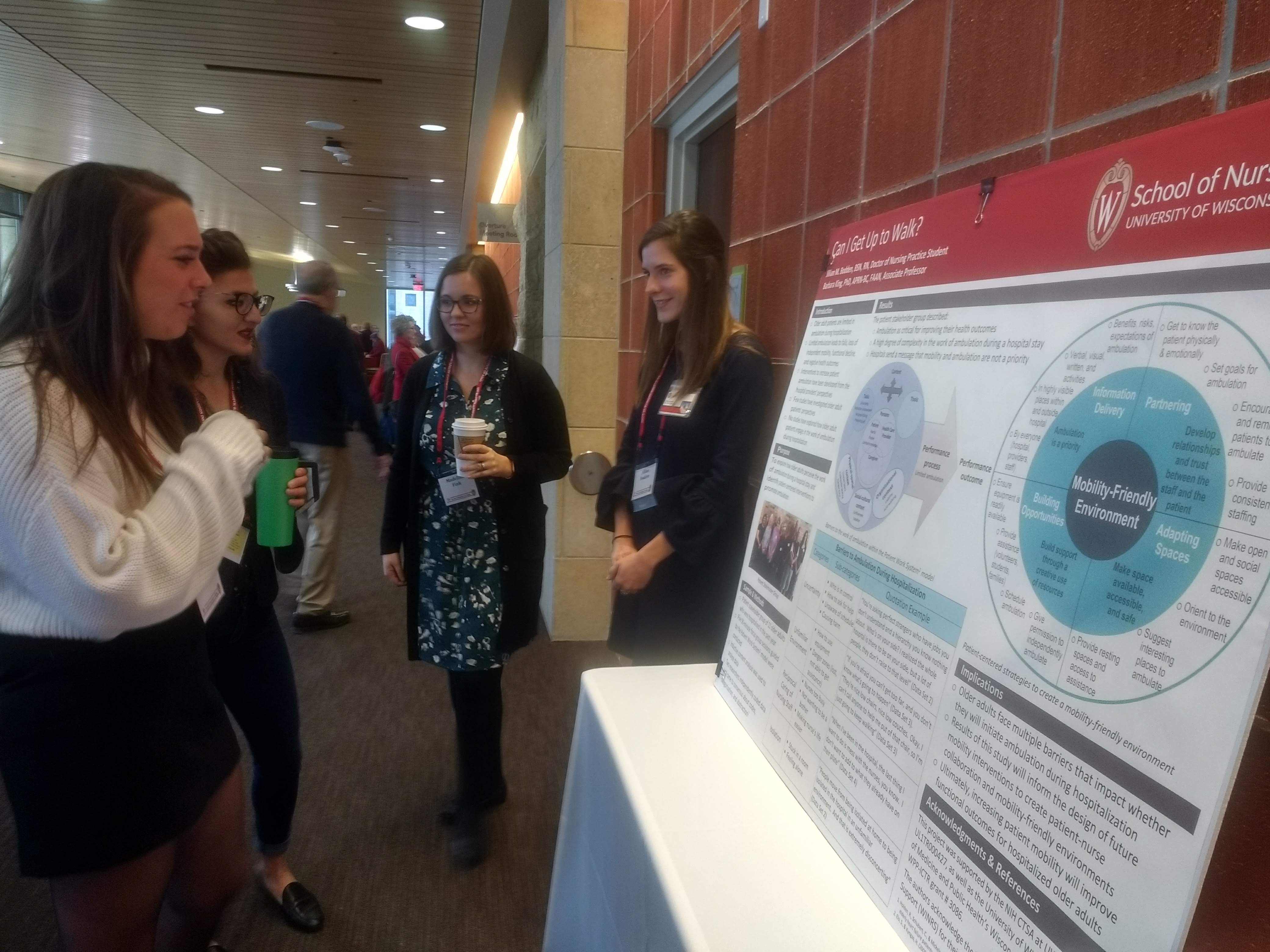
|
|
|
June 2025
The monthly newsletter from the Center for Aging Research and Education (CARE) at the University of Wisconsin–Madison School of Nursing.
|
|
|

|
|
|
|
|
|
Whether you’re a health care professional, direct care worker, or housing or service provider, the conversations that you have with older adults can help identify potential mental health issues.
“It’s about forging relationships,” says Earlise Ward, PhD, a licensed psychologist and faculty director of the Cancer Health Disparities Initiative at the University of Wisconsin–Madison Carbone Cancer Center. “How do you forge relationships? By being active, engaged listeners. When people know you’re listening to them, then they’re more likely to engage and share.”
Depression is less prevalent among older adults than the general population. Yet the consequences can be more serious for older people, compounding physical conditions, affecting cognitive function and increasing the risk of suicide. At least half of older adults with depression first experience it later in life.
“It is important to recognize that depression is not a normal part of aging. Not experiencing joy is not a normal part of aging,” stresses Ward. “Things may change, things may shift, but that should not get in the way of you being able to have fun, enjoy yourself and have a decent quality of life.”
|
|
|
|
|
|
|
|
Would your research plans, current study, program, or service benefit from the lived experiences of rural older adults? The Rural Board of Older Adult Advisors (BOAA) has openings in their 2025 meeting schedule. Contact CARE to learn more about meeting with the Rural or Madison BOAAs (Diane at farsetta@wisc.edu or 608-265-9542).
|
|
|
|
Jaime Goldberg, PhD, LCSW is a Clinical Assistant Professor at the UW–Madison Sandra Rosenbaum School of Social Work. Her professional and research interests include aging, health, palliative care, and interpforessional education and practice.
"I was drawn to this field through personal and professional encounters with older adults," says Goldberg. "Influenced by my great-grandparents, who were an integral part of my life until I was a teenager, I worked as a friendly visitor with Little Brothers – Friends of the Elderly in Chicago after I finished college. It was there that I saw my 'old friends' struggling to navigate the healthcare system. They were literally and figuratively losing their voice, with nobody to advocate for them."
|
|
|
|

|
|
|
|
|
|
|
- Applications are now open for the poster session and new investigator awards at the UW–Madison Institute on Aging's Annual Colloquium. More information and the application are online.
- "It's really because of the great Wisconsin participants that we now have something that's pretty revolutionary," Nathaniel Chin, MD with the UW–Madison Alzheimer’s Disease Research Center told Fox6 News, referring to a newly approved blood test for Alzheimer's disease. What are the benefits? "Earlier care, so people can make lifestyle interventions—that would be exercising, sleep, diet, social engagement," Chin said.
- “We’re simply not going to have enough people to take care of everyone” who needs care, Mollie Gurian, a vice president at LeadingAge, a nonprofit that represents providers of aging services, told the New York Times. The article points out that demand for long-term care is rising as "the care industry has a shortage of workers that is driven partly by low wages."
- "The State of Wisconsin Board on Aging and Long Term Care is expanding its Volunteer Ombudsman Program to include assisted living communities in addition to skilled nursing homes," the Board announced in a recent press release. "As the number of assisted living communities in Wisconsin continues to increase, the need for volunteer advocates grows statewide."
- Since she retired and began volunteering for the American Red Cross, Madison resident Judy Giacomino "has responded to dozens of fires, floods, tornadoes and hurricanes," reads a profile in the Wisconsin State Journal. "When my mother passed away, we were cleaning out her stuff, and she had a little card: volunteer with the Red Cross, 1939. So during World War II," Giacomino said. "I thought, 'Maybe I better try that.'"
|
|
|
|

|
Please visit the "CARE Products" page of our website to read descriptions of and request free PDFs for the following resources:
- Dementia Friendly Hospital Toolkit
- Dementia Friendly Toolkit for classroom and community settings
- Engaging Older Adult Community Members as Advisors on Health Research Toolkit
- Geriatric Care Simulations Toolkit
- Healthy Aging in Rural Towns (HeART) Toolkit
- Implementing Change in Long-Term Care Toolkit
- Support for Older People: A Manual for Promoting Health
- Support for Older People with Intellectual Disability manuals (available in U.S. and Wisconsin versions) and manager's guide
To access Geri-Res, please follow the link below:
- Geri-Res online transition to practice program for long-term care nurses
|
|
|
|
|
|
|
|
|
|
|